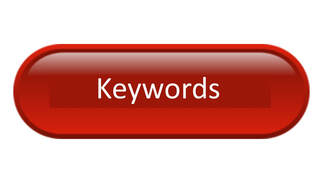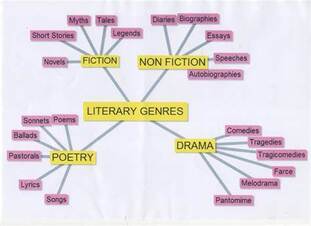|
Disclaimer: We are not connected with Kindlepreneur in any way and have no financial interest in the product reviewed in this blog. This review has not been paid for by Kindlepreneur, Dave Chesson, or anyone else.  Not the real product's logo! Not the real product's logo! Let me make it clear up front, if you only have one book published and never intend publishing another, you aren’t doing much marketing and you don’t intend paying for marketing, this product may not be of much use to you. But if you intend having a lengthy career as a self-published author, if you are planning to publish a series, or if you are a small, independent publishing house like us, then there is probably something here to interest you. Warning: This is a lengthy blog because for authors and publishers to understand the value of the product we are reviewing, they also have to understand the need for it. What need do you have that this product satisfies? You may not even know you have that need until you read this blog. Publisher Rocket is an aid to marketing and an aid to advertising using Amazon Ads and other advertising platforms. One of the things every publisher (I include self-published authors in that) has to know is which keywords to include in their book’s description in order for it to attract the attention of readers when they are looking for something new to read.  If you have ever uploaded a book onto KDP, you will know that you are allowed to enter 7 “keywords” into your book’s details. Actually, you can use more than 7 words, because you can enter “strings” of words. For example, you don’t have to limit yourself to “romance” as a keyword, you can enter “modern romance” instead and it will still only count as one keyword. When readers are searching for books to read they may use Google, other search engines, or the search bars of retail sites such as Amazon. Very often they don’t know exactly what they are looking for, so they can’t enter a title or an author’s name. Instead, they enter a word or string of words that describes (for them) the type of book they want. For example, as a fan of historical fiction, I may do a search using those two words. Or I might add “military” to the description because I like historical fiction set around military themes. Or I might use “World War II” as my search term. "they are wasting one of the 7 keywords that KDP allows them." If the author knows what search words the readers are using, they can make sure those words are included in their 7 keywords for their book’s description on KDP, so they are guaranteed to be found when a search is done, and the book will appear in the search results - though not necessarily near the top of the list. But authors also need to know which words not to include; the words that readers rarely use for searches. If the author uses them, then they are wasting one of the 7 keywords that KDP allows them.  The problem is, identifying which words the readers are using. It may not be the ones we think they are. You may think I’m talking about “Search Engine Optimisation” (SEO) and you are dead right – I am. Only we don’t need to use a fancy term like that, and we certainly don’t need to pay someone to do that for us. Manual targeting on Amazon Ads is the most cost efficient way of using that advertising platform. But it relies heavily on the advertiser (you) knowing how to get the best out it.  So many genres - but which one is the best fit for your book? So many genres - but which one is the best fit for your book? The first type of manual targeting uses your book’s genre. Anyone who buys books in the same genre will have your book in their “recommendations”. Amazon Ads suggests the genres and you can delete any that you don’t think really apply. For example, Amazon Ads may suggest both modern and historical romance for your book, but your book can’t be both, so you can delete the one that doesn’t apply. But you can also insert your own genres. For example, if yours is a fantasy book with a strong romantic sub-plot, you don’t have to limit your advertising to the fantasy genre. You can add romance genres too. Do you know which genre listing on Amazon is going to be the best for your book? Some are better than others for getting your book seen and, according to Publishing Rocket’s publicity video, there are “hidden” genres too. For some genres you can even get to the number 1 bestseller spot by selling only a handful of copies. That is useful stuff to know – but how do you find out which genre(s) you should be advertising to? Read on to find out. By the way, did you know that you aren’t limited to just 2 genres on KDP? That only applies when you first upload your book. Once it is published, you can select up to 7. You need an account on Author Central and then you need to go to Help>Contact>Amazon Store & Detail Page>Contact us>Amazon Book Page>Update Amazon Categories.  The second type of manual targeting uses keywords. Amazon Ads tutorials suggest using between 100 and 150 keywords (or keywords strings) in an ad such as this. If you struggled to come up with 7 keywords for your book, how are you going to come up with 100-150? Well, using author names and the titles of similar books is one way. But whose books and which titles? Which is where Publisher Rocket comes in. OK, it took a long time to get here, but if you don’t understand the basics of Amazon (or other platform) advertising, you aren’t going to understand the value of this product. What Publisher Rocket does is gather together the search terms that are used on Amazon and presents them to you for your consideration. But it also does much more than that. It also provides data which tells you which of those terms is best at turning advert “clicks” into sales. "Publisher Rocket helps to sort the wheat from the chaff"  Not all search words are equal, you see. Sometimes the reader enters fairly random words into the search bar and therefore the results they get back don’t provide them with what they are looking for, so they have to have another go. But if the reader clicks on a book out of curiosity, those random search words still appear as results, so it is essential to know that they aren’t that useful, so as to exclude them. Publisher Rocket helps to sort the wheat from the chaff by providing the user with a wide range of data that they can download into a spreadsheet to filter and sort to their heart’s content to answer the vital keyword questions they may have. The one thing they don’t want to do is pay for clicks on their ad which won’t be converted into sales. Just because they and Isaac Asimov both write sci-fi, it doesn’t mean that their readers and Isaac Asimov’s readers like the same sort of books. They may want to exclude that name as a keyword for that reason, so that they don’t pay for clicks from curious Isaac Asimov readers who aren’t going to buy their books.  OK, if that sounds complicated, that may be something for just the real data nerds to get into. For the rest of us, Publisher Rocket provides us with some simpler tools to use to find words that are good to use for our books, by genre, and what aren’t so good. Using the app is easy enough, but Publisher Rocket’s owners make it even easier by providing “how to” webinars to guide you through the various functions and offer advice on how to get the best results. The owner of Publisher Rocket is a company called Kindlepreneur, a company created by self-made Kindle millionaire Dave Chesson. This isn’t their only product, but it is the one we have found to be most useful in helping us to increase the efficiency of our advertising campaigns. If you saw our blog last week (see below the end of this blog), you will know that this is something we have been focusing on in recent months and it has paid off for us. Publisher Rocket costs $97 (around £85) for a lifetime subscription, which is why it may not be suitable for people who only ever plan to publish one book and who don’t intend getting into marketing. In other words, it isn’t any use to an author who doesn’t want their book to be read. Those that do want their books to be read may find it more useful. "As a publisher this was a no brainer for us" But even if you only have one book, the purchase price could be paid back quite quickly (it is the equivalent to approximately 50 extra sales) if you use the results to improve your advertising efficiency. As a publisher this was a no brainer for us. We bought Publisher Rocket in November last year and it had paid for itself by Christmas. We don’t use it every day, but when we do use it we know we are going to get the most bangs for our buck out of our advertising. So, if you need some help with your Amazon Ads, this product may be just the thing and we are happy to recommend it. If you want to know more about the product, click here. If you have enjoyed this blog, or found it informative, then make sure you don’t miss future editions. Just click on the button below to sign up for our newsletter. We’ll even send you a free ebook for doing so.
0 Comments
Leave a Reply. |
AuthorThis blog is compiled and curated by the Selfishgenie publishing team. Archives
March 2025
|
 RSS Feed
RSS Feed